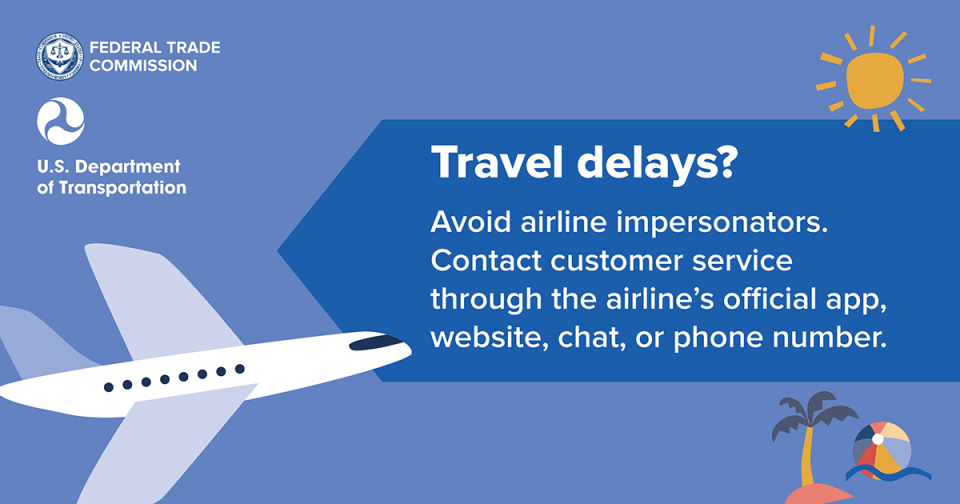Most people can probably agree that there are few things more frustrating than airline delays or cancellations that leave you stranded at the airport. Whether the issues are the result of an unprecedented event like the Crowdstrike glitch that grounded thousands of flights worldwide, or more common disturbances like weather delays, desperate travelers often turn to social media for help from the airlines. Opportunistic scammers know this, and they’re lurking behind fake accounts trying to steal travelers’ information.
Scammers crawl social media looking for posts from upset travelers. They reach out to them through fake social media accounts and pretend to be an airline customer service representative who's there to help. The scammers ask passengers for a slew of information, like their booking confirmation number, phone number, or bank account. Or they send passengers to a spoofed site that harvests their personal information and use it to steal the passenger’s identity or rack up charges on their accounts.
If you’re dealing with travel troubles, here's how to avoid getting re-routed to an airline impersonator:
- Log in to your airline account and contact customer service through the airline’s official app, website, chat, or phone number.
- If you’re at the airport, speak to a customer service representative in person.
- If you reach out through social media, find the airline’s official social media page on their website. Look for a verification symbol or badge. And never give out personal information on social media.
If someone stole your personal information, go to IdentityTheft.gov to report it and get recovery steps. And report imposters to the FTC at ReportFraud.ftc.gov.
Visit FlightRights.gov to learn about the airline passenger protections you are entitled to, or to file a complaint with DOT if an airline is not treating you fairly.


Scammers are everywhere!!!!
My checking account has been hacked way too many times!!!!
It’s not good idea to post your frustrations on social media. Scammers these days are working how to get victims..
Best to go if you have concern direct from the companies information..
There’s so much to careful these days especially our information…